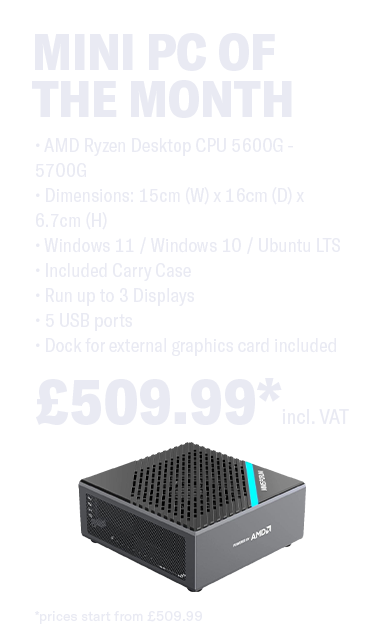
How to Choose a CPU

How to Choose a CPU
With the increasing demand for online courses and workplaces moving towards a remote working model, computers have become essential for learning and productivity.
That’s why choosing the right CPU is so essential. If you want to use your computer for fun, then the sort of CPU you’ll require will differ from that if you’re using it for business or study purposes. Here’s what you need to know.
CPU Components and Features
1) Processors
You have two choices for processors – Intel Core and AMD Ryzen. Processors with more cores and threads generally outperform those with fewer cores and threads. And the clock speed is the number of cycles the CPU executes per second, measured in GHz (gigahertz).
Both processors have different families represented by 3, 5, 7, and 9 to indicate their relative processing power. Here’s how they differ.
- i3 vs Ryzen 3 – The i3 is best for everyday use, like sending emails or streaming movies. The Ryzen 3 has a higher clock speed of 4GHz. If you are looking for a primary processor with more power, the i3 is the better choice.
- i5 vs Ryzen 5 – The i5 is better for gaming and working in Photoshop. It has a clock speed of 4.6GHz. The Ryzen 5 has a higher number of threads, which is helpful for gamers and people who use multiple programs simultaneously.
- i7 vs Ryzen 7 – The i7 is the best for professional use and people who need more power. It has a clock speed of 4.5GHz. The Ryzen 7 is better for multitasking and has more threads than the i7.
- i9 vs Ryzen 9 – The i9 has a high clock speed of 5GHz and low wattage. The Ryzen 9 has a lower clock speed than the i9 but has more cores. If you are looking for the most powerful processor, the Ryzen 9 is the best choice.


2) Cores and threads
Processors with more cores and threads typically perform better than those with fewer cores and threads. For instance, the Ryzen 7 has eight cores and 16 threads, while the Ryzen 5 has six cores and 12 threads. This means that the Ryzen 7 can handle more tasks simultaneously than the Ryzen 5, making it better for video editing or gaming.
3) Graphics processors (GPU)
You have two choices when it comes to GPUs – AMD or Nvidia. AMD GPUs are generally cheaper and have more cores than Nvidia GPUs, which help with multitasking. However, Nvidia GPUs are better for gaming since they have more CUDA cores. So, if you want to play games at 1080p, you should go with Nvidia’s RTX 3000 chipsets.


4) Cache
Cache memory is a type of fast memory found on the CPU. It is split into three levels: L1, L2, and L3. The size of each level’s cache memory depends on the CPU. The L1 cache is the fastest to retrieve data but has the smallest memory, while the L3 cache is the slowest to retrieve data but has the largest memory.
5) Socket compatibility
If you already have an existing motherboard and upgrade the processor, you must select a compatible CPU for the motherboard’s socket. Most processors use a standard socket type, but there are some exceptions, so it’s essential to check the compatibility before purchasing.


6) Clock speed
The clock speed measures the number of cycles your CPU executes per second, measured in GHz. A CPU with a clock speed of 3.2 GHz executes 3.2 billion cycles per second, which means it can complete tasks faster than a CPU with a clock speed of 2.4 GHz.
7) Thermal design power (TDP)
The TDP, measured in watts (W), is the amount of heat generated by the processor. This means that a processor with 95W TDP will require a cooling system that can handle a 95W TDP to keep it from overheating since it will generate more heat.

Specs According to Use

Home PCs
If you’re only using the computer to check emails or surf the web, you should consider i3 processors with an integrated GPU and a clock speed of 1GHz or higher. You won’t need a powerful CPU, and the integrated GPU will save you money.
Small business use
Consider the price point, compatibility, and core features when purchasing a CPU. For example, if your business needs to run processor-intensive software programs, you will need a quad-core processor to handle the demand. If you are looking for a low-cost option, you may want to consider an AMD A4 or Intel Pentium CPU.


Gaming desktops
If you’re a hardcore gamer, you should consider the number of cores, clock speed, GPU, and TDP. This is because your gaming performance will be directly affected by the specs of your CPU. An i7 or Ryzen 7 with a clock speed of 4GHz or more is a good starting point.
Mobile users
Laptops typically use i3 or Ryzen 3. Their processors are designed to be more efficient and generate less heat. If you’re only using your device for basic tasks, you don’t need a high-powered processor. Instead, focus on specs like battery life and portability.
By focusing on specs like processors, cores, and threads when selecting a CPU, you can ensure that you get the best performance for your needs.
Inside-Tech.co.uk has a wide selection of desktops and PCs perfect for all types of users. Contact us here to build your desktop today!

